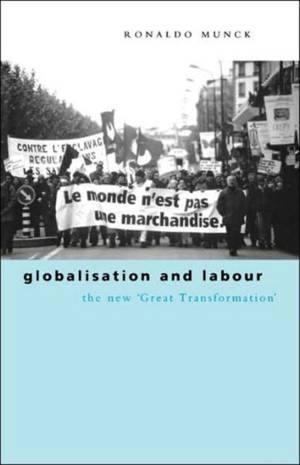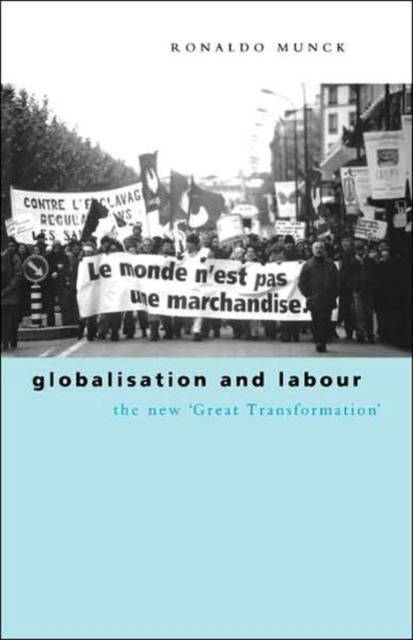
- Retrait gratuit dans votre magasin Club
- 7.000.000 titres dans notre catalogue
- Payer en toute sécurité
- Toujours un magasin près de chez vous
- Retrait gratuit dans votre magasin Club
- 7.000.0000 titres dans notre catalogue
- Payer en toute sécurité
- Toujours un magasin près de chez vous
Description
Intellectual fashion currently focuses on us as consumers, but the world of production and services still needs us as workers. While globalisation has, in part, been driven over the past two decades by the transnational corporations' search for cheap labour in new regions of the South, scholarly research and the mass media have paid remarkably little attention to the consequent changes that are happening in the world of work. This book is the first to deal comprehensively and analytically with labour's response to globalisation. It provides a critical overview of the main challenges facing workers and trade unions worldwide. Its author argues that what may be described as the national period in labour history is decisively over. Now the labour movement is itself acting increasingly in a transnational manner. This holds out the hope of its playing a major role in the social regulation of a global economic system which is largely out of control.
The author explains how globalisation is foisting flexibilisation and feminisation on working people, but in the process also making them conscious of their transnational links. The 'old' internationalism of the trade union movement is now showing signs of developing into a 'new' internationalism where workers develop a sense of common interest and new ways of organizing that transcend national boundaries. Drawing his evidence from what is happening to workers and trade unions in a wide range of countries in both the industrialized North and the developing South, Professor Ronaldo Munck suggests that we may be on the brink of a new version of what Karl Polanyi, many years ago, strikingly called 'the great transformation'. The implications for workers, trade unions and their transnational corporate employers could be profound.Spécifications
Parties prenantes
- Auteur(s) :
- Editeur:
Contenu
- Nombre de pages :
- 240
- Langue:
- Anglais
Caractéristiques
- EAN:
- 9781842770719
- Date de parution :
- 01-07-02
- Format:
- Livre broché
- Format numérique:
- Trade paperback (VS)
- Dimensions :
- 160 mm x 218 mm
- Poids :
- 294 g

Les avis
Nous publions uniquement les avis qui respectent les conditions requises. Consultez nos conditions pour les avis.






